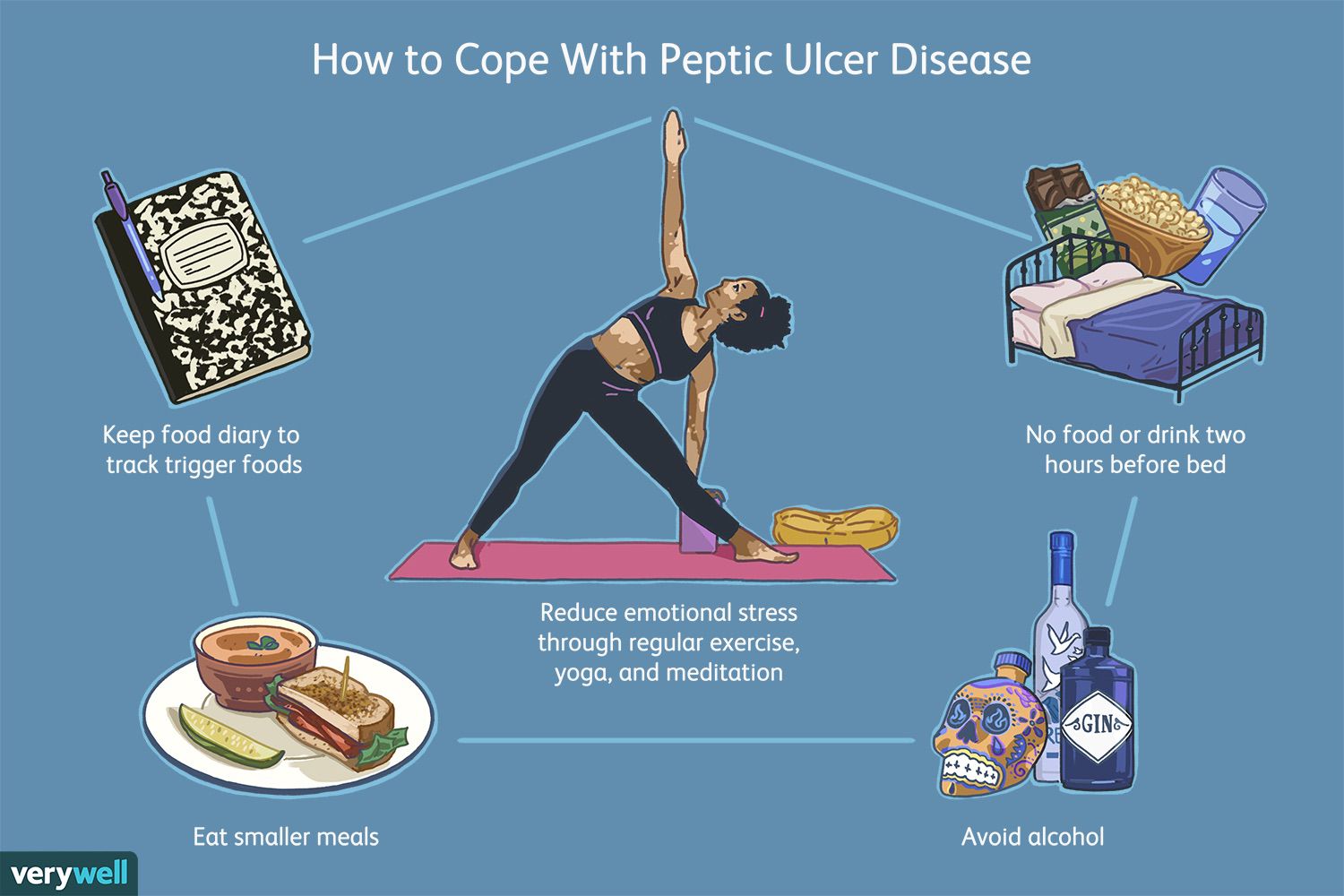
Ulcers can be uncomfortable and potentially serious if left untreated. However, many ulcers can be prevented through thoughtful lifestyle changes. In this blog, we will explore key lifestyle factors that contribute to ulcer development, effective strategies to reduce ulcer risk, the importance of regular medical check-ups, and how to foster a supportive environment.
Key Lifestyle Factors
1. Diet
What you eat plays a crucial role in maintaining digestive health. Certain foods can irritate the stomach lining, while others can help protect it.
- Foods to Avoid: Spicy foods, citrus fruits, caffeine, and alcohol can exacerbate ulcer symptoms. Highly processed foods and those rich in trans fats may also increase the risk of developing ulcers.
- Foods to Include: Incorporating a diet rich in fruits, vegetables, whole grains, and lean proteins can promote overall digestive health. Foods high in fiber, such as oats and legumes, can help soothe the stomach lining.
2. Exercise
Regular physical activity can help maintain a healthy weight and reduce stress, both of which are beneficial for ulcer prevention.
- Benefits of Exercise: Engaging in moderate exercise, such as walking, swimming, or yoga, can enhance overall well-being, improve circulation, and reduce the risk of gastrointestinal issues.
- Guidelines: Aim for at least 150 minutes of moderate aerobic exercise each week, alongside strength training exercises on two or more days.
3. Smoking
Smoking is a significant risk factor for ulcer development. It can increase stomach acid production and hinder the healing process.
- Quit Smoking: If you smoke, consider seeking support to quit. There are various resources available, including counseling, support groups, and medications that can assist in cessation.
Effective Strategies to Reduce Ulcer Risk
- Manage Stress: High-stress levels can contribute to ulcer formation. Implementing stress management techniques such as meditation, deep breathing exercises, and mindfulness can help reduce stress levels.
- Stay Hydrated: Drinking enough water is essential for overall health and can help maintain a healthy digestive system. Aim for at least eight glasses of water a day, adjusting for activity level and climate.
- Limit Over-the-Counter Medications: Prolonged use of nonsteroidal anti-inflammatory drugs (NSAIDs), such as ibuprofen or aspirin, can increase the risk of developing ulcers. If you require pain relief, consult your healthcare provider about safer alternatives.
- Maintain a Healthy Weight: Excess weight can contribute to increased abdominal pressure, which may lead to acid reflux and other digestive issues. Maintaining a healthy weight through balanced nutrition and regular exercise can help mitigate this risk.
Role of Regular Medical Check-Ups
Regular check-ups with your healthcare provider are essential for maintaining overall health and preventing potential ulcer development. Here’s how they can help:
- Early Detection: Routine exams can help identify risk factors and symptoms before they escalate into more serious conditions.
- Tailored Advice: Healthcare professionals can provide personalized recommendations based on your medical history and lifestyle, helping you adopt healthier habits.
- Monitoring Medication: If you take medications known to increase the risk of ulcers, your doctor can monitor their effects and suggest alternatives as needed.
Encouraging a Supportive Environment
Creating a supportive environment can significantly influence your lifestyle choices and overall well-being:
- Family and Friends: Encourage your loved ones to adopt healthy habits alongside you. This can include cooking nutritious meals together, exercising, or practicing stress-reduction techniques.
- Workplace Wellness: Advocate for a healthy workplace culture that promotes wellness initiatives, such as fitness programs, stress management workshops, or healthy eating options.
- Online Support: Join online communities or social media groups focused on healthy living. Sharing experiences and tips can motivate you and others to stay committed to healthy choices.
Conclusion
Preventing ulcers is largely about making conscious lifestyle changes. By focusing on a balanced diet, regular exercise, stress management, and avoiding harmful habits like smoking, you can significantly reduce your risk of developing ulcers. Additionally, regular medical check-ups and fostering a supportive environment will empower you to maintain these positive changes in the long run. Taking proactive steps towards a healthier lifestyle is essential for not only preventing ulcers but also promoting overall health and well-being.

